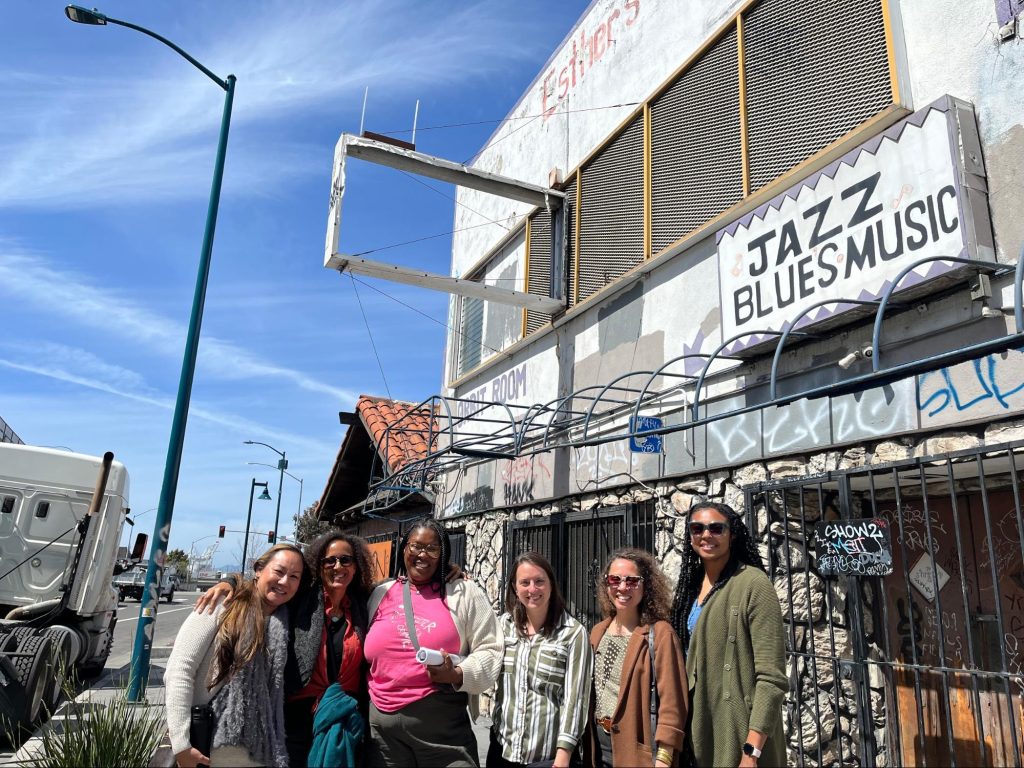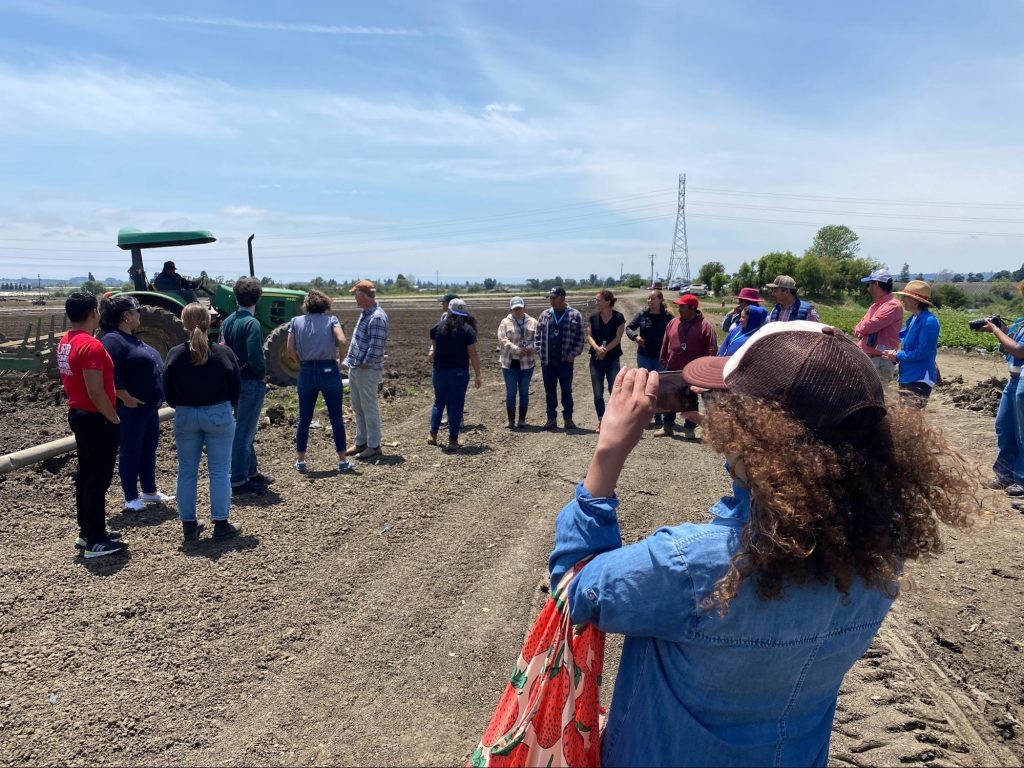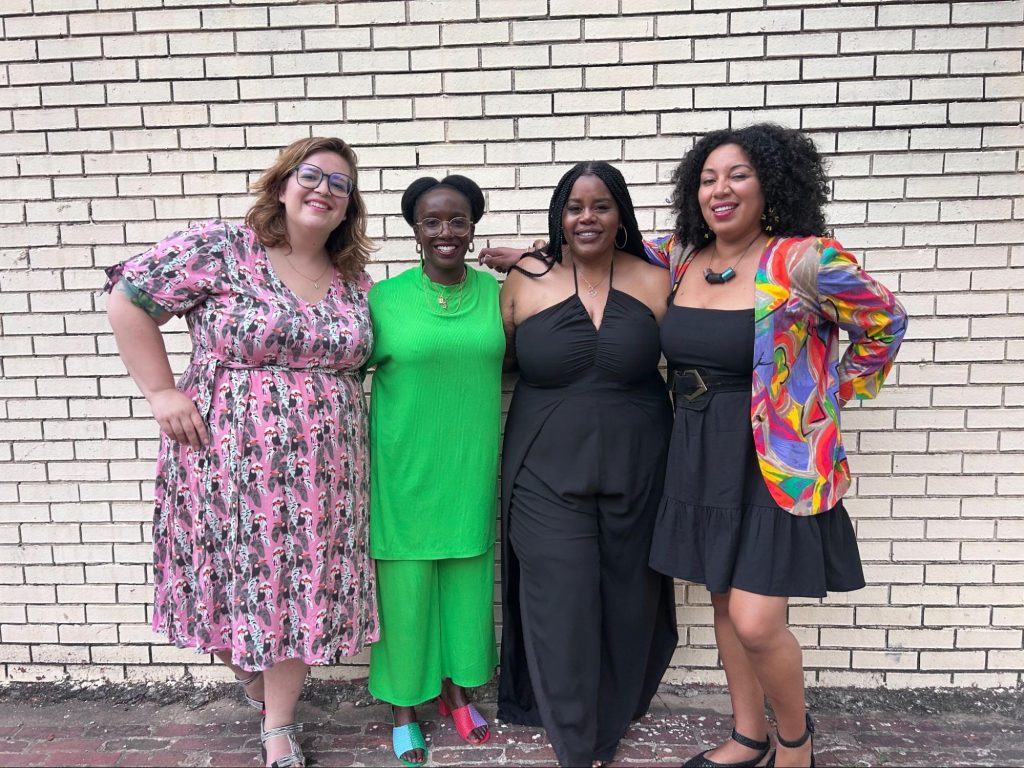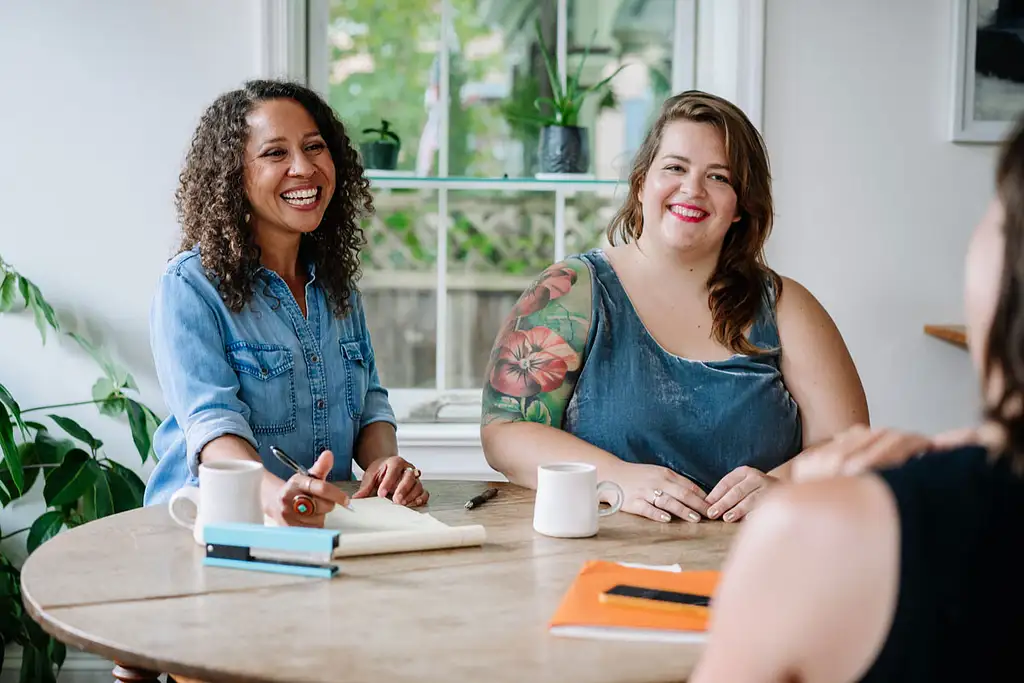As told by Annie McShiras, Investment & Fundraising Director at EB PREC
EB PREC (East Bay Permanent Real Estate Cooperative) is a Black, Indigenous, people of color led organization that takes real estate and housing off the speculative market and puts it back in the hands of community members for community benefit. We do this by supporting residents and community members with the tools to empower them to find, vet, and work with us to finance properties that they want to live and work in. We use a participatory, deeply democratic model of community engagement for community ownership.
We have over 740 members as part of our multi-stakeholder cooperative: Resident Owners, Community Owners, Staff Owners and Investor Owners who are part of our model and who help make it all happen. Our work is about community control for folks who have been historically displaced and continue to be displaced within their own city of Oakland. The displacement is happening along racialized lines and in ways that are predominantly displacing Black and Indigenous people, and all people of color. And so those are the folks that we focus on empowering and working with most closely and are the core to our leadership and membership.
“We’ve counted Chordata as an ally and champion of our work since we both got started 5 years ago. Since the beginning, Chordata was wanting to figure out how they could get involved. When we launched our Esther’s Orbit Room capital campaign- our biggest campaign to date to raise the dollars we needed to acquire and rehabilitate this historic property in West Oakland- Chordata was one of the first major institutional investment advisors to come in and say “We believe in this work, and we want to bring our clients in to invest in it.” Because of Chordata’s belief in us and the connections they helped us make, we were able to bring in other registered investment advisors. Now we have a number of advisors that have joined Chordata in having us on their platform and offering EB PREC Investor Owner shares to their clients. It’s been incredibly supportive. We’ve raised nearly 2 million dollars through those channels, about 1 million directly through Chordata clients- and counting!
To share an example of what our work together has made possible: EB PREC recently purchased Esther’s Orbit Room, a historic property that sits at the heart of the 7th St. corridor in West Oakland. We’re a part of an exciting partnership with Bay Area LISC, who we’re partnering with on 7th Street Thrives, an initiative that is spearheading a holistic development approach to supporting revitalization of the 7th St. corridor and bringing it back into community member’s hands. Esther’s is an anchor to the 7th Street Corridor, historically called Harlem of the West, and was a cultural, arts & economic hub back in the 40’s through the 90’s for the Black community in West Oakland.
There’s a lot of danger in what’s happening throughout Oakland in terms of the forces of gentrification. Large profit-seeking developers are buying up properties, sitting on them until they increase in value, then flipping them and making as much money off them as possible. That’s what we’re worried about happening on 7th street. So we’re taking matters into our own hands, with the support of community. We’ve not only started buying property on the Corridor and getting it into community control, but we’ve been able to work with our partners to get the street lights updated by the city of Oakland, which is something the community has been asking for for decades. We’re getting trash picked up. We organized a big Black Earth Day event and brought in people from across the community, taking back the corridor and restarting and revitalizing it for community benefit. Whenever I’m at Esther’s, at least a few elders walking by on the Corridor come by and say, “Oh, I remember back in the day coming to Esther’s after work and getting a drink with my friends. When is it going to be coming back? When are we going to see it start up again?” People are really excited just to see that there’s any kind of momentum and spirit coming back to the neighborhood.

It was a huge vote of confidence that we received from Chordata at the very beginning of our capital campaign, that made it possible for us to then say to other advisors, “Hey, Chordata invested in us, and here’s the process we went through with them. Would you like to join, too?” And it was much easier for other advisors to come in, once they saw that a peer had joined and had brought us into their portfolio. Early on, we had conversations about bringing debt capital in as a loan. Through conversations with Chordata, we came to be supported by them with investments in EB PREC equity from their clients, which is game changing for us because we actually created our own investment terms that align perfectly with what we need and the kind of capital we need. Being able to bring in investments on our own terms has been transformative for our ability to keep housing and real estate affordable for the residents and community members that we support, because of the flexible low interest capital that we were able to raise, and because it’s equity and not debt.
Our relationship with Tiffany and Kate is one very much based on trust and support, and that’s unique amongst most grant and funding relationships because of the power differentials that all too often make that level of trust difficult to obtain. We’re really aligned in terms of our vision for the role that capital can play to make transformative change. Chordata and EBPREC share the value of being in right relationship with capital, with our 740 members, and with the investors we work with. We share that underlying foundation in both why and how we do what we do, and it’s a really important tenet of restorative economics.”
— Annie McShiras, Investment & Fundraising Director, EB PREC






